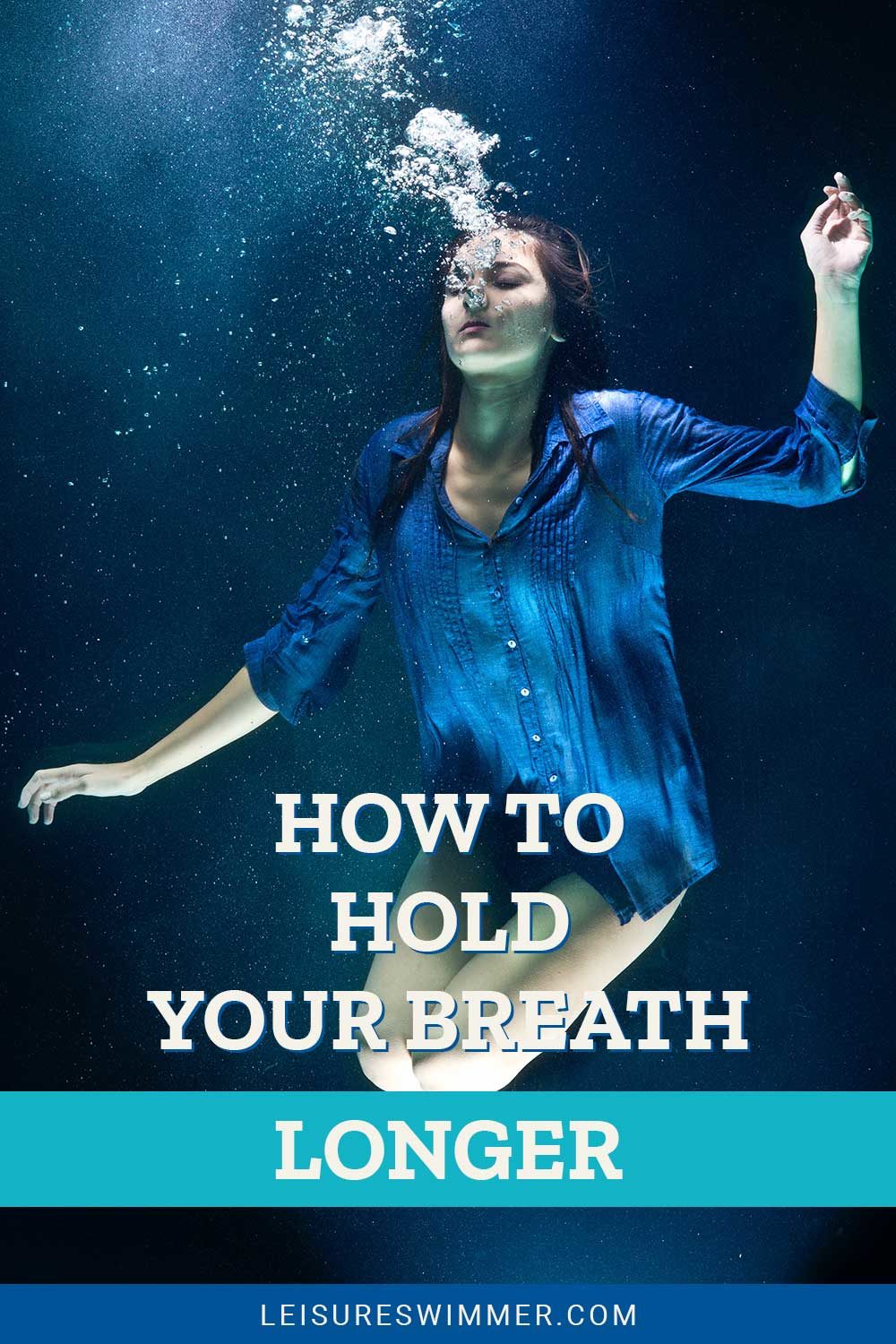How To Hold Your Breath Longer
We may earn commissions for purchases made through links on our site. Learn more on our about us page.
Some straightforward techniques and exercises help people learn to hold their breath longer, teaching their bodies to become more oxygen efficient.
As a person breathes, they release the carbon dioxide buildup from all the organic processes that occur within the body, such as metabolization and respiration.
In doing simple breathing and breath-holding exercises, a person can increase the amount of time they can go without the need for an inhale of oxygen. The simplest way to start is by timing oneself on how long one can hold their breath.

How Long Can the Average Person Hold Their Breath While Underwater?
The average person can hold their breath somewhere in the range between thirty seconds and ninety seconds. The ideal controlled pause would be in the vicinity of three minutes, but most people will have a limited ability closer to less than a minute.
The world record for a person’s ability to hold their breath underwater is held by Budimir Šobat from Croatia, and he was able to stay underwater for twenty-four minutes and thirty-seven point three six seconds.
A record that had been held since 2016 by the Spaniard Aleix Vendrell.

How to Practice Holding your Breath Longer
There are simple little exercises that can be done in and out of the pool, and the first is to hold your breath periodically and time yourself.
Dedicate a half hour to an hour to the task, exhaling fully and then using your diaphragm for a strong inhale to max lung capacity and hold.
Exhale, relax for a minute or two, catch your breath, and then repeat. When using the pool, use a similar inhale technique as detailed above and plunge under the surface of the water, then hold.
Stay under until you need to take a breath, then surface and catch your breath. Take time between controlled pauses and be aware of any signs of lightheadedness.
How Often are You Supposed to Exercise?
The most commonly accepted health advice is to be active and exercise regularly; that will mean three to five days a week, at minimum an hour each day.
When it comes to breathing exercises, a person can do those all day long. Specific breathing practices can be performed as a form of meditation, appropriate for almost every situation that can occur throughout the day.
If you want to improve your ability to hold your breath underwater, approach it like any workout and keep a record of achievements made during that time.
How Long is it Going to Take?
There will be a need for patience when it comes to seeing results from breathing exercises concerning holding breath.
Most notice an improvement in lung efficiency when walking around before significant gains can be made on holding their breath underwater for extended amounts of time.
Depending on the person doing the training, some military and professional divers are known to train to the point of having the ability to hold their breath for seven to ten minutes on a regular basis.
However, to see results like this will take months and possibly more than a year.
Things you Need to Avoid Doing
The first and most important thing to remember is not to overdo it or to take unnecessary risks in the water when exercising your lungs. It is tough enough to keep one’s breath out in the water without purposely holding it and risking suffocation or drowning.
If you are experiencing lightheadedness in the pool or open water, please get out of the water and catch your breath. The last thing anyone wants is for someone to drown, teaching themselves to hold their breath underwater.
The safest practice to utilize is having another person there with you, someone there to keep an eye on you and have the presence of mind to be ready for any mistakes the person exercising their lungs might make.
Final Thoughts on How to Hold your Breath Longer
The simplest way to work on your oxygen efficiency is to work out regularly, even swim laps for three to five days a week.
The stronger your cardiovascular system becomes, the more efficient the body becomes with oxygen, which will translate to being able to hold one’s breath for extended periods.
There are diving professionals that have been said to have the ability to stay underwater and swim for upwards of seven to ten minutes. Otherwise, the average human being has been stated to have the ability to hold their breath for thirty to ninety seconds.


